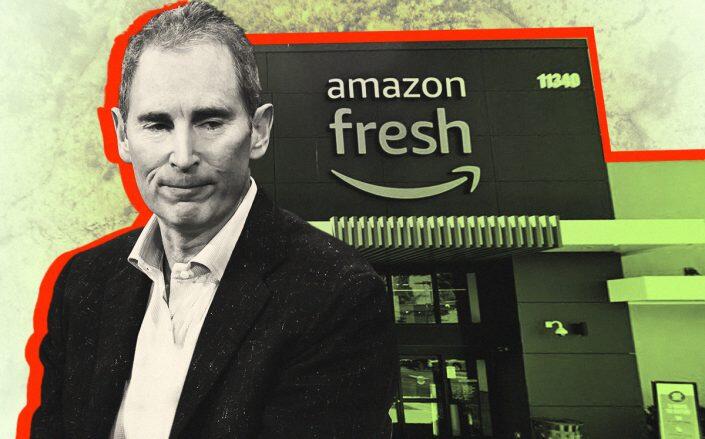Amazon’s foray into physical retail has gone so poorly, the online shopping juggernaut scrapped plans to open its first big-box store, The Information reported.
The store, which didn’t have a name but was developed under the code-name Reese, was in development as late as 2021 and was slated to open this past January, the outlet reported.
It would have offered clothes, groceries and other items, as well as utilized the register-less checkout system that the Amazon Go convenience chain is equipped with.
But Amazon’s fourth quarter earnings call revealed that its physical stores — Amazon Go, Amazon Fresh and bookstores and pop-up shops — performed so poorly that Reese was scrapped.
During that call, CEO Andy Jassy confirmed that the company had stopped opening new Amazon Fresh stores, which had been reported by The Information, but not confirmed by Amazon. That’s on top of Amazon closing all 68 of its bookstores, pop-up shops and 4-star stores last March.
CFO Brian Olsavsky said Amazon planned to close some Fresh and Go stores this year, The Information reported.
The numbers aren’t great: revenue was just 10 percent higher last quarter than the same period five years prior. Worse, that small growth came after Amazon opened scores of stores — including Whole Foods, which Amazon acquired in 2017 — during that same period, the outlet reported.
Innovations that Amazon did make in the space, such as Just Walk Out checkout, are too expensive to retrofit all 500 Whole Foods nationwide. Right now, just two Whole Foods are equipped with the technology.
The news concerning brick-and-mortar stores comes at a time when Amazon is looking to cut costs — including the layoff of at least 10,000 employees — as a result of flagging sales in its e-commerce business, according to The Information.
— Ted Glanzer
